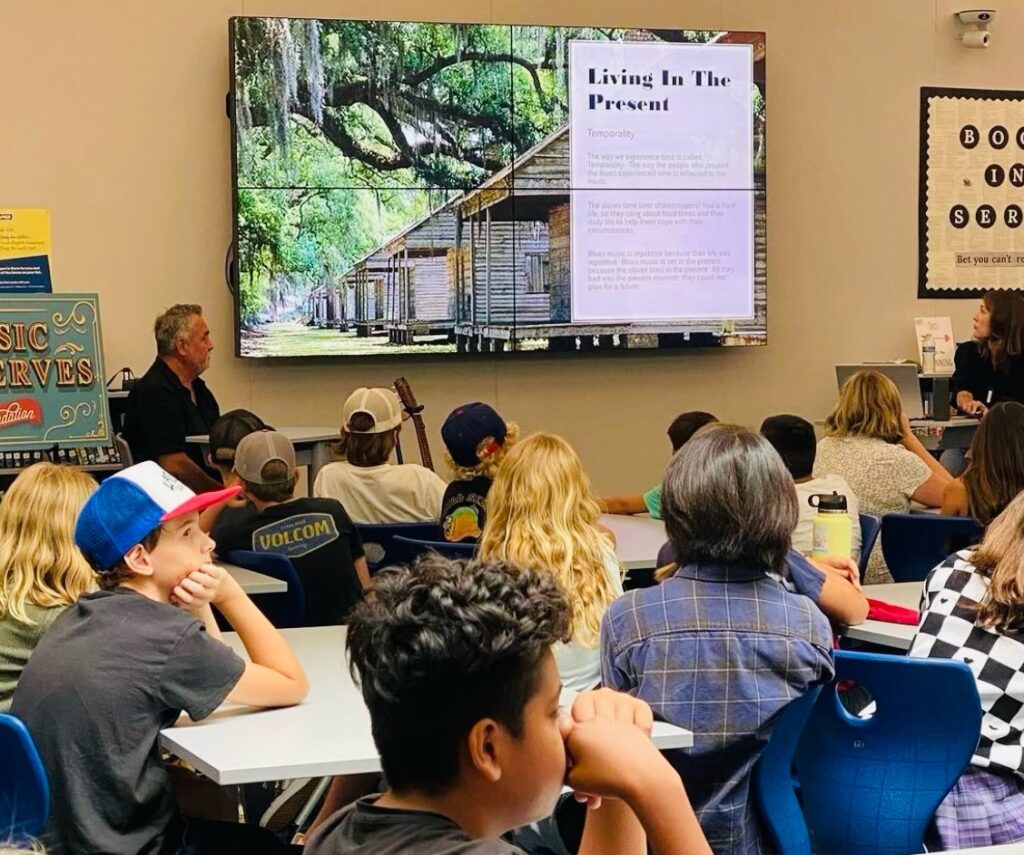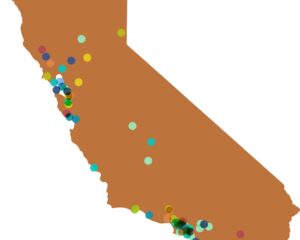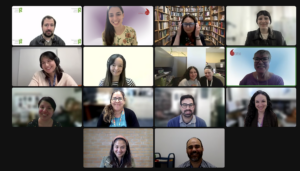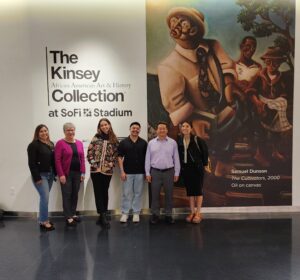Photo courtesy of Music Preserves Foundation.
Among our very first cohort of Civics + Humanities Middle Grades grantees is the Music Preserves Foundation’s American Music History Course, which will reach students across Orange County’s largest school district, Capistrano Unified School District, later this fall. This project will develop a fully online interactive music history course that will help middle grades students learn history from diverse perspectives and make connections between music, art, and civic engagement throughout American history. For example, students will encounter the Great Depression and the New Deal through country and folk music, study the era of segregation through rock and roll, see the era of civil rights riots through Motown, and study Black pride through soul music.
Funding from California Humanities is supporting the Music Preserves Foundation’s ongoing work to bring music and cultural history education programs to Orange County through collaborations with local schools, music festivals, cities, and the business community. Below, project director Patti Compton answers a few questions about their Capistrano Unified course and how it will incorporate humanities and civics education.
How do you help students connect the dots between music and life in America? For instance, how do you tell the story of the Great Depression and New Deal through country and folk music?
In our American Music History online course, students learn to recognize and appreciate the immense contributions to American history and culture by scores of diverse communities. If you want to know what life was like at any point in history, look at the art and music of the time. Music is a primary source material for studying history.
We help students connect the dots by exploring country and folk music as the music of people living through the Great Depression. During this time, people were struggling — on the road looking for work, hopping train cars, and collectively helping one another survive.
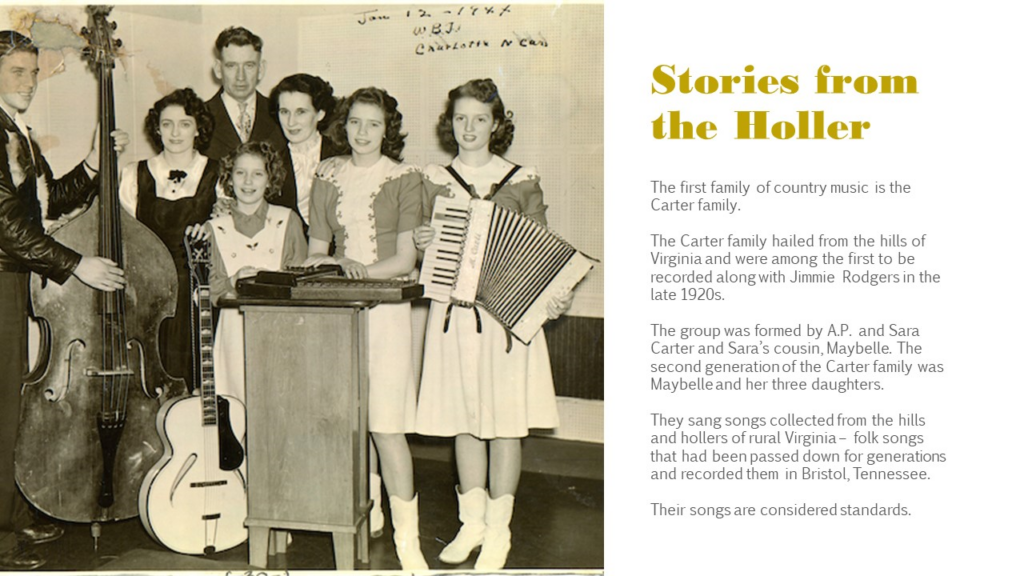
Early country music reflects American life in the 1930s as the music takes on the sounds of the country, railroad steam engine whistles, and riverboats. It is traditional folk music and honky-tonk dance music. Country music reflects the lived experience of people during the Great Depression: pouring out of the family radio, the music gave comfort to rural communities and migrant families. By listening to the lyrics, pacing, and onomatopoeia in early country music, students grasp the feeling and emotion of life in 1930s rural America.
“If you want to know what life was like at any point in history, look at the art and music of the time. Music is a primary source material for studying history.”
Patti Compton
The earliest recorded country singers like Jimmie Rodgers and the Carter Family sang songs collected from farming families throughout the hills and hollers of the rural south – songs that had been passed down for generations. Early country music is the collective first-person voice of a generation of Americans.
What sources (texts, archives, culture keepers) did you turn to illustrate the stories?
In our course, we use American roots music as the main primary source material to study a time period. We also use reading excerpts from first-person texts written during the era. For example, in the Country and Folk lesson, students read first-person accounts of people with varying perspectives who lived through the Great Depression. For our in-person courses, we bring accomplished musicians and culture bearers into schools to demonstrate American roots music first-hand.
How do you hope students will engage with the material? Can you give a few examples of feedback you’ve received?
Students who have participated in our in-person lessons are better able to thrive in their regular history classes. They are able to iterate on their experiences with us by studying American history through the perspectives of artists and musicians, and building their content and context knowledge. We hope our course provides this much-needed content knowledge, appreciation for music and art, and diversity of perspectives that students can carry with them as they study other disciplines.
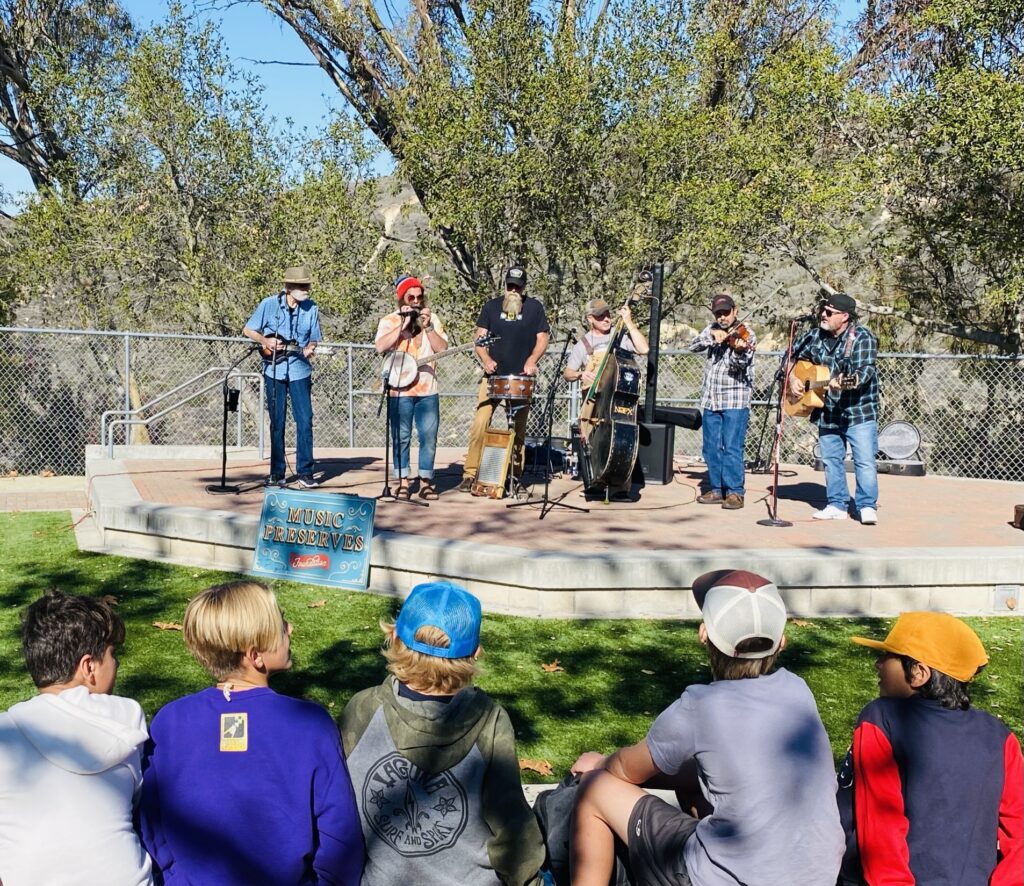
This fall, American Music History Course will roll out in classrooms in the Capistrano Unified School District. What’s the plan for the pilot? Do you have other plans to continue or extend this project?
In the 2023-2024 school year, we will pilot our online course at Shorecliffs Middle School in the Capistrano Unified School District through their music instructor. Once we have received feedback from students, teachers, and administrators, we hope to build avenues to expand into a stand-alone course available to students throughout the district, and build a scalable model to expand to other school districts within the next couple of years.
Our American Music History course has been designed to meet UC A-G requirements as a music appreciation course and is in line with the Ethnic Studies Model Curriculum.
Music Preserves Foundation is always looking for new schools interested in implementing their music history course. If you are interested in learning more, visit https://www.musicpreserves.org/online-course
Patti Compton is the co-founder and president of Music Preserves Foundation, a music historian and host of a music history radio show/podcast on KX FM 104.7 called Play Something Sweet, and creator of award-winning music history courses.

